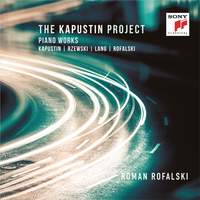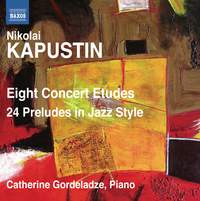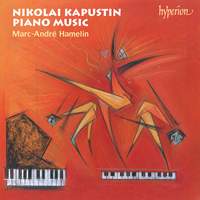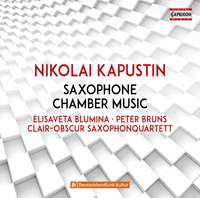Obituary,
Nikolai Girshevich Kapustin (1937-2020)
 The composer and pianist Nikolai Kapustin has died, aged 82. Born in Gorlovka but active in Moscow for much of his career, he was initially self-taught to a large extent before studying at the Moscow Conservatory with Avrelian Rubakh. His early association with the Oleg Lundstrem Big Band instilled in Kapustin a lifelong appreciation for, and strong affinity with, the jazz idioms that he had first encountered listening at night to the giants of the US jazz scene broadcast via the radio station Voice of America. Many of his works display an infusion of jazz-derived harmonies into a classical structure – audible particularly in the Suite in the Old Style Op. 28, Concert Etudes Op. 40, and his two sets of 24 Preludes and Fugues, Opp. 53 and 82.
The composer and pianist Nikolai Kapustin has died, aged 82. Born in Gorlovka but active in Moscow for much of his career, he was initially self-taught to a large extent before studying at the Moscow Conservatory with Avrelian Rubakh. His early association with the Oleg Lundstrem Big Band instilled in Kapustin a lifelong appreciation for, and strong affinity with, the jazz idioms that he had first encountered listening at night to the giants of the US jazz scene broadcast via the radio station Voice of America. Many of his works display an infusion of jazz-derived harmonies into a classical structure – audible particularly in the Suite in the Old Style Op. 28, Concert Etudes Op. 40, and his two sets of 24 Preludes and Fugues, Opp. 53 and 82.
As a pianist-composer in the Russian tradition (following in the footsteps of Medtner, Scriabin and Rachmaninov), Kapustin’s compositional output is overwhelmingly dominated by the piano, with almost all his works including it; much of it, too, is dauntingly virtuosic. At the same time, he also stands out among “classical” composers for having written extensively for big band, especially during his early career, treating this ensemble as a vehicle no less worthy of “serious” treatment than the orchestra. His dazzling showpiece Toccata Op.8, which he recorded with the Oleg Lundstrem Big Band on Russian television in 1964, is the most well-known example of this, and represents an avenue of composition rarely explored before or since. A video of this performance is below, and illustrates Kapustin's prodigious talent at the keyboard.
From the 1980s onward, Kapustin, who despite the impressive achievements alluded to above was seemingly slightly reticent about performing on stage, focused his energies solely on composition, and the result was three decades of sustained writing. From this period come his first forays into some well-trodden non-piano musical forms, with his Cello Concerto coming in 1997, his String Quartet a year later and his Violin Concerto not until 2009. Yet even after he ceased to be primarily a pianist, the piano was always the lynchpin of Kapustin’s music, with almost all his compositions, right up to his last works in the 2010s, placing it front and centre.
Kapustin’s family, in an unusual reversal of the common attitude faced by many composers when growing up, seem to have dreamed of seeing their children become musicians; Nikolai fulfilled this, while his sister Fira became a chemist. Science evidently ran in the family as much as music, however, since Kapustin is survived by his son Anton Kapustin, a prominent theoretical physicist specialising in string theory.
Nikolai Kapustin - a selected discography
Roman Rofalski (piano)
Available Formats: CD, MP3, FLAC, Hi-Res FLAC
Catherine Gordeladze (piano)
Available Formats: CD, MP3, FLAC, Hi-Res FLAC
Marc-André Hamelin (piano)
Available Formats: CD, MP3, FLAC
Elisaveta Blumina, Peter Bruns, Christoph Enzel, clair-obscur Saxophonquartett
Available Formats: CD, MP3, FLAC






